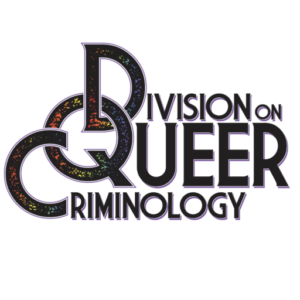There are many ways to connect with #QueerCrim colleagues around the world!
Twitter: Follow us at @QueerCrimASC, and use the #QueerCrim hashtag to ask questions, start discussion, or publicize your research.
Facebook: We have a page at https://www.facebook.com/queercrim/ for networking and discussion of issues related to #QueerCrim
Listserv: We maintain a Queer Criminology listserv. If you’d like to be added, send an email to Vanessa Panfil at vpanfil@odu.edu or Christina DeJong at dejongc@msu.edu.
Email: queercrim@gmail.com
Listserv and other Social Media Participation Expectations
The DQC’s social media outlets are to be used to (1) share information relevant to the DQC’s mission and its members and (2) to promote Division and DQC-related activities.
The QUEERCCJ listserv (which functions as the DQC listserv) and other DQC related social media outlets (Facebook, Twitter, etc.) should be treated as professional academic forums in which posters are expected to adhere to standards of respect and transparency in their communications. Critical commentary is welcomed but direct attacks/threats will not be tolerated. The DQC does not tolerate hate speech.
Furthermore, we reject and prohibit sexism, cissexism, racism, heterosexism, bigotry, or any oppressive speech grounded in social class, disability, age, gender identity, education, sexuality, rurality, or religiosity. We are dedicated to dismantling heterosexism, transphobia, white supremacy, white nationalism, and racism within our scholarship, our universities, our classrooms, and our communities. Please refer to the DQC statements on Trans Inclusivity and Racial Inequity/Black Lives Matter available on our website.
Penalties for Problematic Social Media Participation
The Executive Board will handle any violations of these policies, which could result in members’ removal from the listserv or social media outlets. All actions taken to moderate social media and listserv activity will be done in the spirit of transparency by announcing decisions made to all members along with justifications for doing so. The Executive Board will respond to all legitimate inquiries from those it serves and will engage in additional dialogue with the membership as needed to resolve conflict in a restorative manner.
